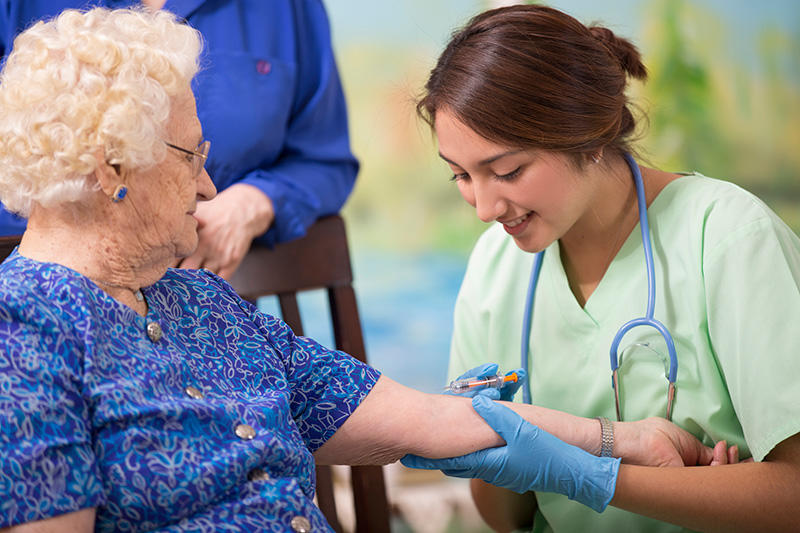Featured
Tags
Share

According to the Bureau of Justice Statistics, around 2.3 million men and women are incarcerated in U.S. jails and prisons. It’s a population with complex and diverse healthcare needs – injuries, chronic conditions, even palliative care.
Providing nursing care to this group of patients, and in this setting, is not a job for everyone, said Lorry Schoenly, PhD, RN, a correctional nursing specialist and visiting professor in Chamberlain’s MSN program. However, for the right nurse, it can also be extremely satisfying and rewarding specialty.
Here are five things to know about correctional nursing:
1. A largely autonomous practice
Correctional nurses have the potential to make a big difference in the lives of their patients. That’s because in many cases, nurses are the first (and sometimes only) healthcare provider an inmate sees.
Nurses make the initial assessment and decide what treatment to provide, based on their scope of practice. Nurses also make the call about whether the inmate needs to see the dentist or a doctor, or go to the hospital.
“As a correctional nurse,” said Dr. Schoenly, “you really, really need to know your stuff. You also need to be very aware of practice boundaries.”
2. Unique patient population, unique environment
A large prison may have a full staff of doctors, nurses and dentists. A county jail may have a solitary nurse on duty.
No matter the size of the facility, there is still one stark difference between correctional nursing and other specialties – security.
In a jail or prison setting, security informs many of nurses’ interactions with their patients. For example, even something as basic as extending sympathy to an ill or injured patient needs to be done in a thoughtful, deliberate way.
“In a nursing home, nurses can show empathy through personal touch,” said Dr. Schoenly. “That would not be appropriate in a correctional setting. You need to be empathetic while maintaining boundaries and following security measures.”
3. Generalists wanted
In a correctional setting, nurses deal with a wide range of chronic and acute medical conditions. In a single day, for example, a nurse could treat everything from TB infections to broken bones to mental health issues.
“It’s soup to nuts of nursing care,” said Dr. Schoenly.
In addition to having a broad nursing knowledge base, correctional nurses also need flexibility and the ability to juggle multiple priorities. Because of that, many nurse managers in prison systems say that nurses with an ER background often make a good fit.
4. The challenges
According to Dr. Schoenly, the biggest ethical and professional challenge in correctional nursing is maintaining a therapeutic mindset. She calls it “the friction between care and custody.”
“The worldview of law enforcement can sometimes be that the inmates are bad people who need to be contained,” she explained. “When you’re surrounded by people who see inmates that way, it’s easy to become cynical and adopt that mindset, instead of taking the view that ‘I’m a healthcare provider, and I provide care to people in need, no matter who they are or what they did.’”
Another challenge is being objective and realistic about the patient population.
“Not all inmates are manipulative, but some are,” said Dr. Schoenly. Nurses who are not self-aware, or who are emotionally vulnerable themselves, can potentially be drawn into a scam or other illegal situation.
5. The rewards
Despite the numerous challenges, said Dr. Schoenly, correctional nursing can be a satisfying specialty – one where nurses can go home at the end of the day feeling that they served as an advocate for a vulnerable patient.
“Many of us entered the nursing profession to help those in need,” she said. “I can’t think of a needier patient population than those in correctional facilities.”
Want to learn more? Here are some documentaries about the correctional healthcare system to check out: Angola Prison Hospice: Opening the Door and the Oscar-nominated Prison Terminal: The Last Days of Private Jack Hall. You can also read Dr. Schoenly’s blog at correctionalnurse.net.
By Danielle Logacho
More from Careers
Request More Information
To receive the Chamberlain University Program Guide, including associated career paths, please select a program of study.






